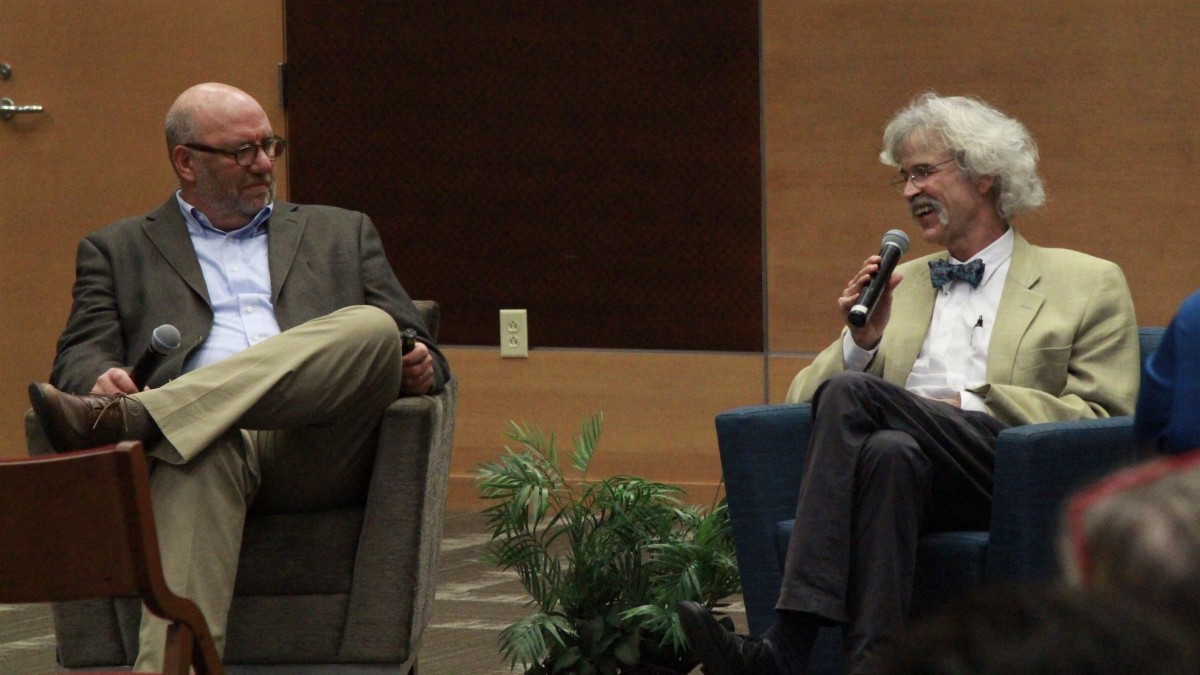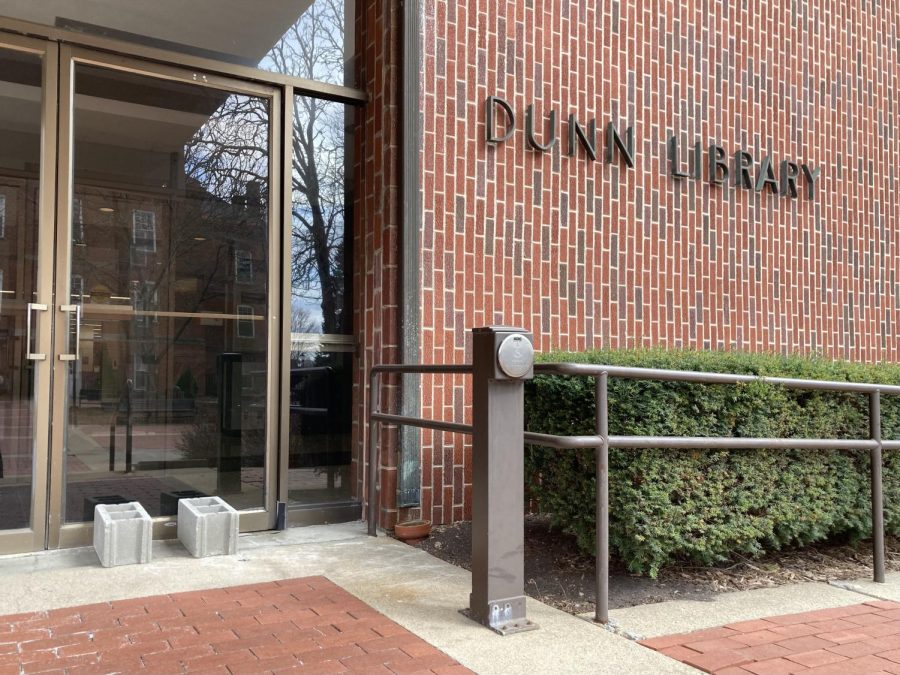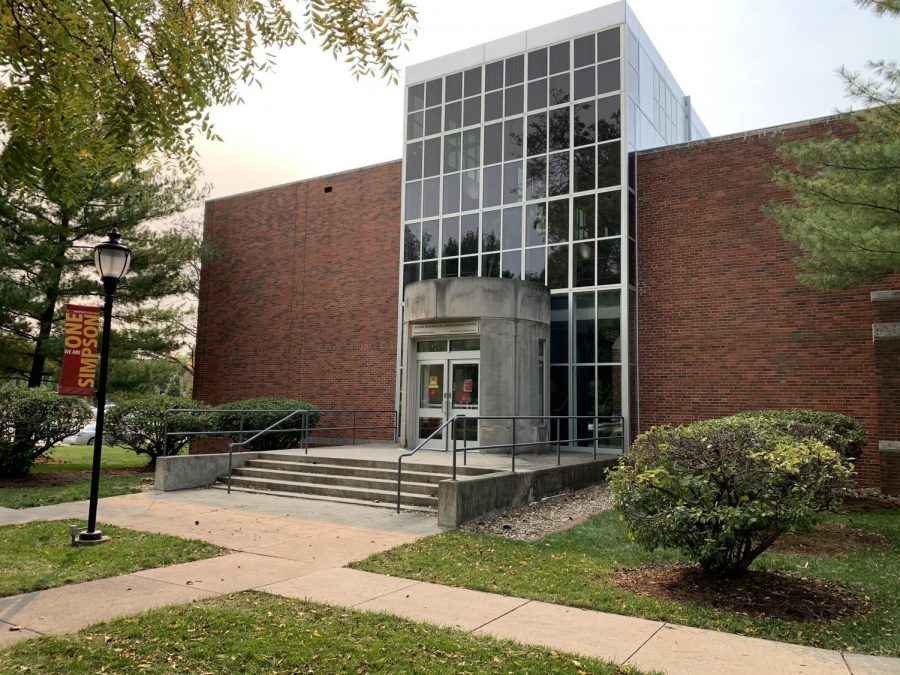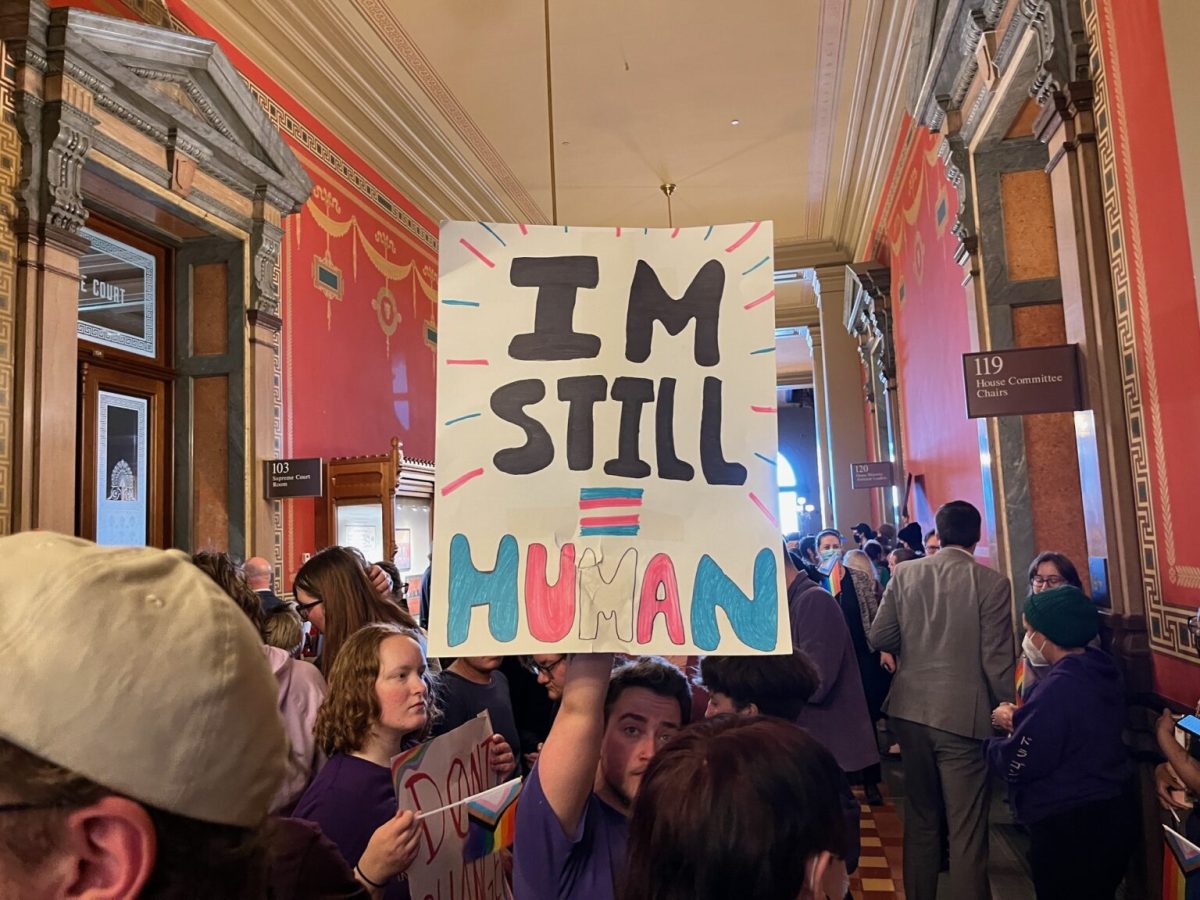Pulitzer Prize winner speaks about win, First Amendment
September 21, 2017
INDIANOLA, Iowa — How did an editor from Storm Lake win the coveted Pulitzer Prize? Even Pulitzer Prize winner Art Cullen doesn’t know.
Cullen visited Simpson College on Wednesday night to give the annual Constitution Day lecture to about 100 people in Hubbell Hall.
Cullen, along with his brother, run The Storm Lake Times, and they accepted their victory on April 10 with excitement.
“It was a series of 10 editorials demanding transparency of our government,” Cullen said.
In 1990, Cullen and his brother started investigating the change of agriculture and water pollution in Iowa.
“Nobody wanted to talk to us about it, not the (Department of Natural Resources), not anybody,” Cullen said. “I had driven around all of northwest Iowa and southern Minnesota taking pictures of all these dying lakes.”
A trip to the environmental council with this information started a lawsuit against Sac, Buena Vista, and Calhoun counties from the Des Moines Water Works for high nitrate levels in the Raccoon River.
Further questions from Cullen about funding of legal fees led to suspicions of secret donations from big corporations, such as the Koch Brothers and Monsanto.
As expected in a small town such as Storm Lake, the news of lawsuits didn’t draw a lot of attention from the citizens or lead to rallies.
“We were sort of out there alone, but on the other hand, I was talking to farmers, and they were totally in support,” he said. “Those farmers remember when the hills were green and when there were cattle roaming everywhere.”
Cullen believes his investigative work is the definition of what the creators of the Constitution intended with the First Amendment.
“Every editorial I do, I look at from the perspective of, ‘How can we build Storm Lake?’” Cullen said. He realizes it is an immigrant community and brings that part of the area into the paper.
Although he lives in small town Iowa, Cullen never loses sight of journalism as a big picture.
Brian Steffen, professor of multimedia communication, brought up a point of how politics shapes the view of the media. Cullen could be seen shaking his head as Steffen showed a “fake news” clip from a Trump rally.
“There is such thing as ‘fake news,’ but it’s not the stuff you disagree with. It’s a lie that is there to confuse you,” Cullen said.
Cullen expressed concern that journalism is a dying trend in our world. He urged the audience to read a newspaper and be informed citizens, not just people that accept the bare minimum of information.
“People are lazy; they don’t want to read a newspaper,” Cullen said. “I have hope, though, because you’re here, that gives me hope for the future of journalism.”






